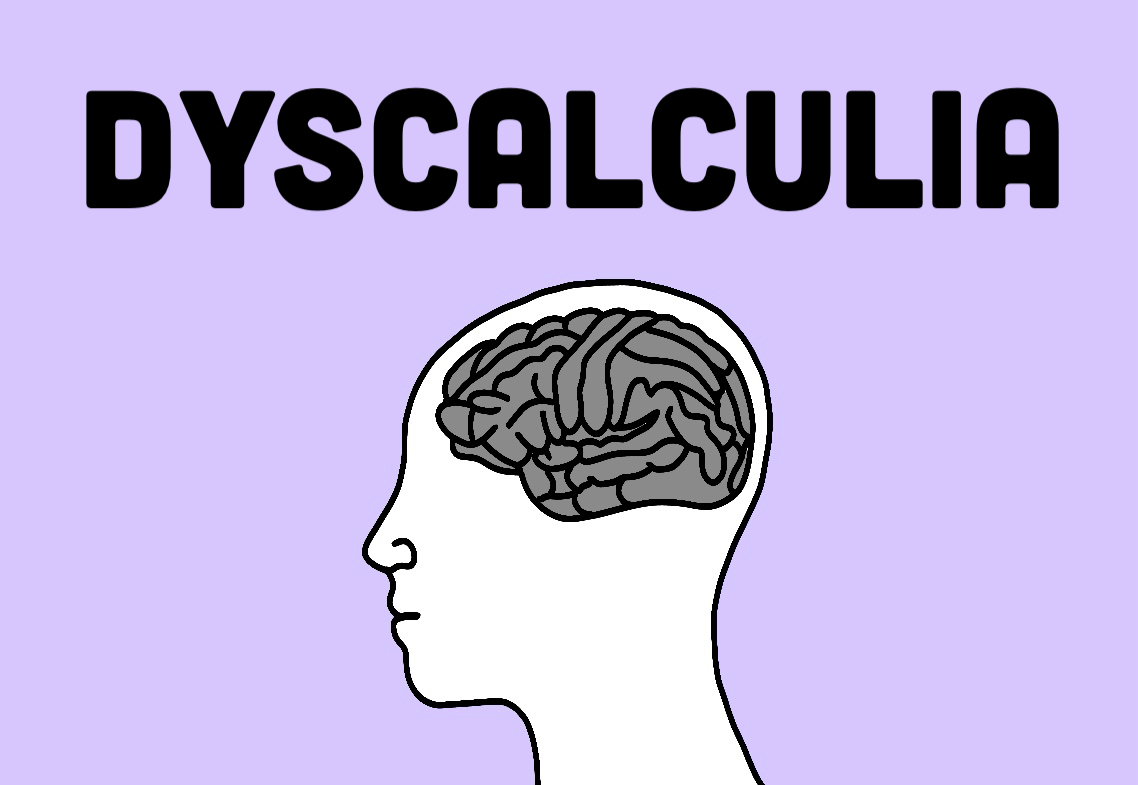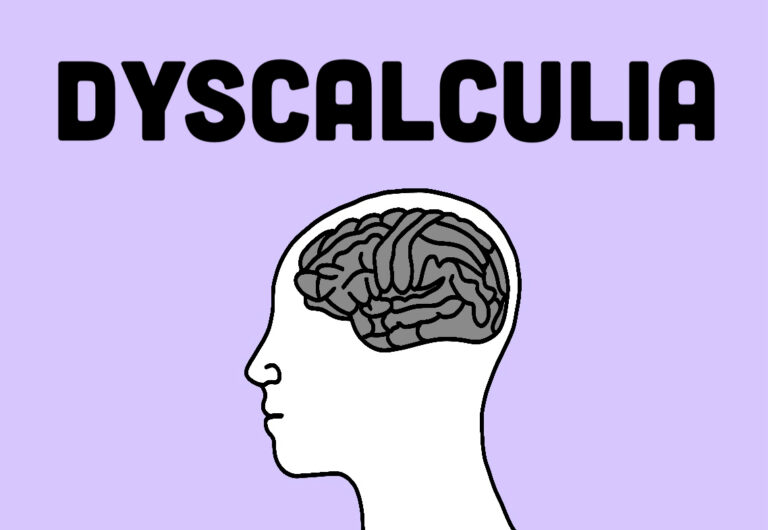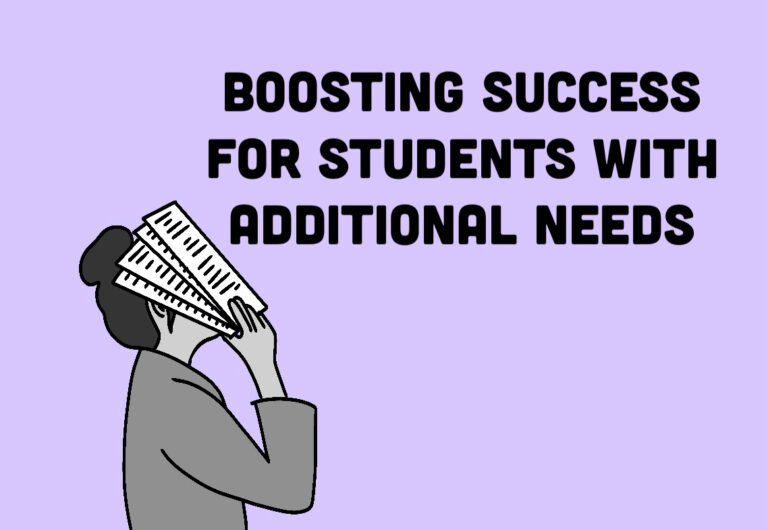WhatsApp:
+353 87 202 0389
Dyscalculia: Fully Explained
Dyscalculia is such a strange word. It’s hard to pronounce. It’s hard to understand and is even harder to diagnose.
So, I had to deep-dive to research this article.
More often than not, Maths struggles are chalked up to external factors. Things like teachers, interest level, or effort are commonly blamed. We rarely stop to think that a student struggling with Maths could actually have a developmental barrier holding them back.
If a child is having a difficult time learning to read, we test them for Dyslexia. So, when a student is clearly falling behind in Maths class, why don’t we have the same reaction and test them for Dyscalculia?
Maybe it’s because so many of us don’t even know what Dyscalculia is.
Let’s get stuck in. And don’t forget we’re here to help!
What Is Dyscalculia?
Dyscalculia is a condition that makes learning Maths infinitely harder than normal. Students with Dyscalculia struggle with understanding the logic behind Maths, doing Maths in their head, and grasping the abstract concept of numbers.
Dyscalculia is more common than you may think, estimated to affect about 6% of the population. However, it’s less likely to be diagnosed than other developmental conditions, like dyslexia. According to an Irish Times article, a research team found that “a child with dyslexia is more than 100 times as likely to receive an official diagnosis and educational support than one with dyscalculia.”
Although we like to believe that we live in a society with an endless amount of research and knowledge on everything that may affect students, we don’t. Dyscalculia was only first identified around 50 years ago in the 1970’s, and has taken a back seat to research for Dyslexia. It’s common to think that some people are just naturally bad at Maths. It’s less common to accept that someone is just bad at reading. So, Dyslexia took priority over Dyscalculia back in the 70’s because the priority was to make sure everyone was literate. Now, we are finally starting to do some research into Dyscalculia, making it more known, accepted, and treatable in our education system.
What Are The Signs?
Dyscalculia looks different for everyone. While some students show signs as early as preschool, others don’t show obvious signs until Maths classes become more complex— sometimes as late as the Junior Cycle or Leaving Cert. No matter the age, symptoms differ from person to person, but there are some commonalities that stick out.
Have you ever completely dreaded doing basic Maths in social settings? Are you anxious to calculate the tip on a bill, or figure out how many new tiles you’ll need for your kitchen? Perhaps you’ve always struggled with Maths topics like addition or the times tables. Maybe grasping the concept of biggest and smallest quantities, or the logic behind Maths in general, was always a challenge for you. These could all be signs that you suffer from Dyscalculia. Other signs to be aware of are deficiencies in estimating time, judging speed or distance, or holding numbers in your head while solving problems.
It’s also common that students with Dyscalculia have other developmental conditions, such as dyslexia or speech and language difficulties. So, if a student already has a developmental condition, and struggles heavily with Maths, it could be a sign that they have Dyscalculia.
If your child struggles with ADHD or Dyslexia, see how to help them in Maths below 👇
The issue with identifying Dyscalculia in a student is that so much of the time we just excuse their symptoms as them being ‘bad at Maths’. In our society, we treat Maths differently than other subjects, like English. We see Maths as being hard for most people, and easy for a lucky few.
But this isn’t the case. If a student wasn’t able to read as well as their classmates, we would know there’s something deeper wrong. So why don’t we assume the same for Maths? Instead of recognizing that a student’s struggles could be the result of a condition, like Dyscalculia, we usually ignore their struggles and dismiss them as ‘not being good at Maths’. This causes further frustration for the child.
How To Manage Dyscalculia
Once the symptoms of Dyscalculia are identified, a person can be diagnosed through the evaluation of an Educational Psychologist. The evaluation for children and adults is different, and it’s best to diagnose Dyscalculia as early as possible.
Once a student is diagnosed, it’s crucial to get help while their brains still aren’t fully developed. This is so that they can learn the skills needed to adapt to the condition before it’s too late. Children are usually treated in one-on-one learning programs that are symptom-specific to focus on the child’s biggest struggles.
Unfortunately, Dyscalculia is often not considered treatable in adults. Since their brains are fully developed, learning programs are less likely to help them. Typically, the solution for adults is just helping them learn how to use technology and other methods to compensate for their struggles with Dyscalculia.
Not only is it important to identify Dyscalculia early for management reasons, but also for overall better opportunities in life. Those who don’t get diagnosed and helped, have lower numeracy compared to other adults around them. This results in lower employment prospects, less earnings, an increase in physical and mental illness, and a higher chance of trouble with the law.
I came across a great blog on Dyscalculia. Catherine Starkey has discussed her own experience of growing up without knowing she had Dyscalculia, and how it had an effect on her whole life. Despite excelling at other subjects in school, he always found extreme difficulty with Maths and didn’t know why. Even presently, having an IQ in the top 1% of the population, her Maths abilities are still around that of a 5-year-old. This caused her to develop anxiety around Maths and numbers in general. It even blocked her from pursuing her passions in Biology because she struggled so much in Physics, despite her talents in the other sciences.
Even in her day-to-day life she still struggles because of it. She doesn’t have a natural sense of time. She struggles to manage her finances. She needs extra processing time to hold on to verbal information. It’s hard for her to see patterns in general in life that are obvious to others. So many things that we all take for granted come much harder for her.
Conclusion
Dyscalculia is a very impactful condition for those who have it. It spans beyond just school Maths tests. It affects people’s lives as a whole and has knock-on effects through to adulthood.
Yes, it’s crucial to make progress with research, studies, and solutions. But it’s also essential to educate the public at large. To break the surrounding stigma. Unlike Dyslexia, Dyscalculia isn’t as well-known a condition to the public. Maybe this is why it goes undiagnosed so much?
For me, it starts with spreading awareness. Let’s educate ourselves on the signs of the condition. If we know how it presents, then we can diagnose more students early on who suffer from it. The more children get help sooner, the less the condition will have an impact on them. And the better their lives will be overall.
TJ— CEO of Breakthrough Maths.
Need help in Maths? Contact the Breakthrough Maths team here.





